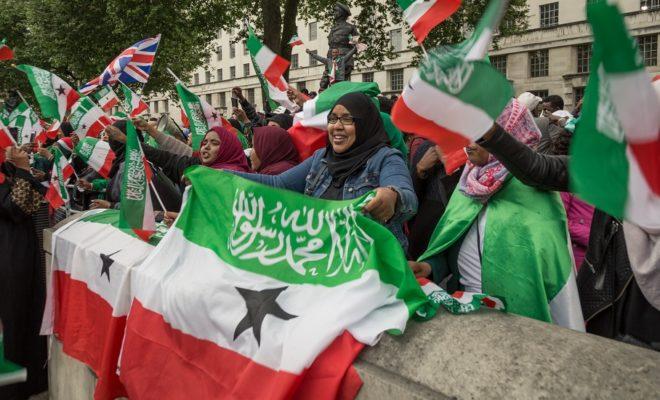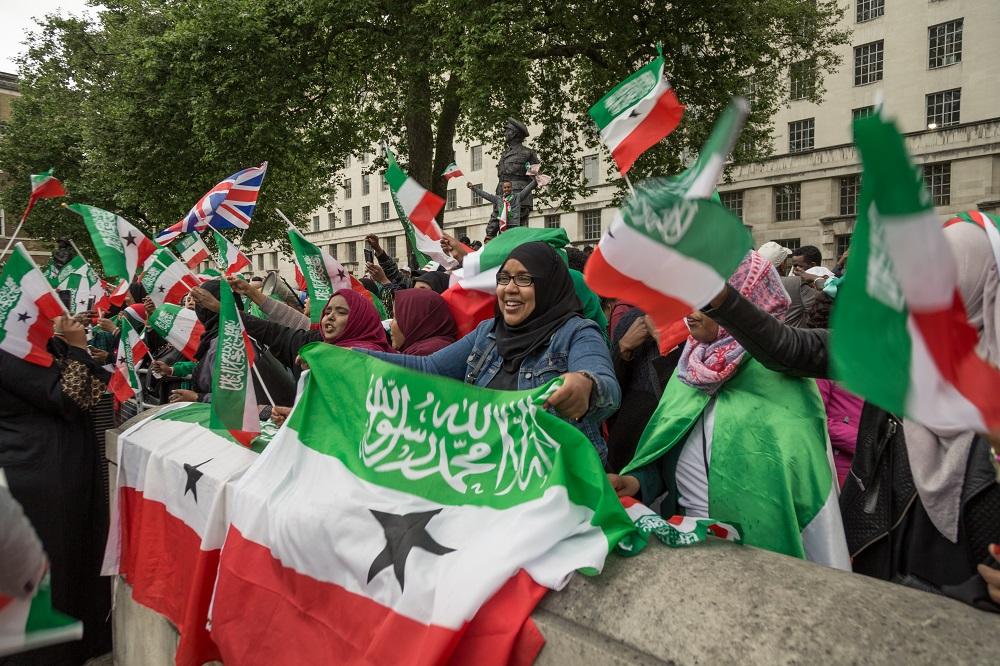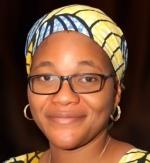International recognition for Somaliland will boost prosperity in the Horn of Africa

26 years on, Somaliland’s Minister of Foreign Affairs and International Cooperation reiterates the case for independence.

A crowd celebrates the 26th anniversary of Somaliland’s reassertion of independence in London.
In recent weeks, East Africa has made headline news for all the wrong reasons. The distressing footage and images of the destruction inflicted by a relentless and ravaging drought has brought the collective plight of our people into sharp focus.
[Droughts in East Africa becoming more frequent, more devastating]
The perilous situation has only served to underline the myriad issues facing the region.
In Somaliland – a small but strategically important country situated below Djibouti and to the north of Somalia and Ethiopia – the drought is devastating our livestock and starving our children. Our youthful population is at threat from radicalisation and mass migration. Our economic development has been stunted by lack of access to international capital. Brought together, these phenomena are impacting our livelihoods and social development, with serious implications for the stability of the Horn.
The situation has revealed our inability to deal with environmental and economic shocks, despite the potential to contribute to regional peace and prosperity due to lack of formal recognition. Although Somaliland was granted independence from Britain in 1960, and decided to leave the union with the Somali Democratic Republic in 1991, our ongoing efforts to secure recognition have to date been frustrated.
But this frustration is tempered by a story of great potential and ambition, which we must turn our attention to as we mark the 26th anniversary of Somaliland’s reassertion of independence this week.
The positive side of Somaliland’s story is unfamiliar to many around the world.
Somaliland is a peaceful country that is stable and democratic, with a constitution that guarantees all fundamental human rights, including freedom of expression. It has a dynamic and youthful population; 70% of the population is under 30 years old. We have made remarkable progress in all areas of social development, but particularly in education. There are over 30 colleges and universities, public and private, which offer higher education and produce thousands of job-ready graduates every year.
Somaliland also has one of the highest levels of mobile penetration in Africa and excellent internet service. We are one of the leading countries in mobile banking in Africa. Increasingly cashless, Somaliland is a prime example of the impact of digital leapfrogging in developing countries on local communities, supporting culture from Hargeisa’s traditional markets to burgeoning start-up hubs. Somaliland has a thriving and innovative entrepreneurial culture, and offers great opportunities for investment.
International investors are taking note. DP World, the international maritime trade and logistics company, recently announced a $442 million project to redevelop and expand the Port of Berbera which is at the crossroad of maritime high ways that connect Europe, Asia, the Middle East and Africa. This investment signals that Somaliland is open for business. A transit and trade agreement in progress with Ethiopia will accelerate the flow of exports and imports through Berbera Port. This will bring much needed maritime competition on the Horn; and as a result, Somaliland will become a gateway to East Africa and the continent beyond.
International recognition will only accelerate the pace of Somaliland’s private sector growth, with positive knock-on effects for the wider region.
Formal acknowledgement of our independence will provide a platform for Somaliland to leapfrog development milestones and solidify our reputation as a stable destination for business in the Horn of Africa. Recognition will also enable us to secure loans at concessional rates and greater development support from intergovernmental organisations.
Just last week in London, the UK government convened diplomats, international development experts and NGOs to focus on the myriad issues facing Somalia, our neighbour to the south, which continues to struggle with security challenges. The international community’s efforts to establish diplomatic partnerships and put in place road maps to reform in Somalia are to be welcomed. Our vision of the Horn of Africa is one of peaceful, prosperous, economically integrated independent states.
We want to assure our friends in Addis Ababa, London, Geneva, Brussels, New York and Washington DC, that we remain supportive of inclusive development in the Horn of Africa, and that Somaliland will continue to be a reliable regional partner, committed to securing a more inclusive and prosperous future for our neighbours.
Bilateral and multilateral support for full recognition of Somaliland’s sovereign independence will allow us to better contribute to building a more inclusive Horn of Africa – bringing greater opportunity and prosperity for all.







Nooooooooooooooo Somaliland is part of somalia